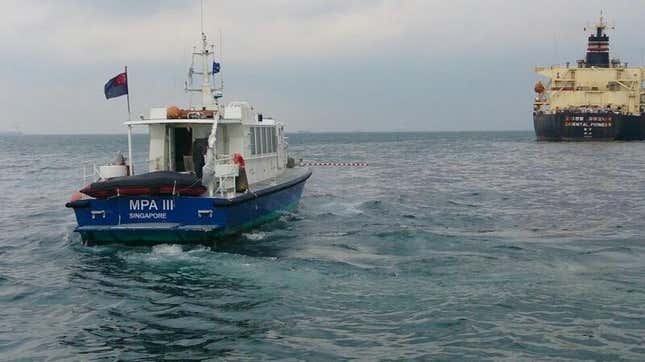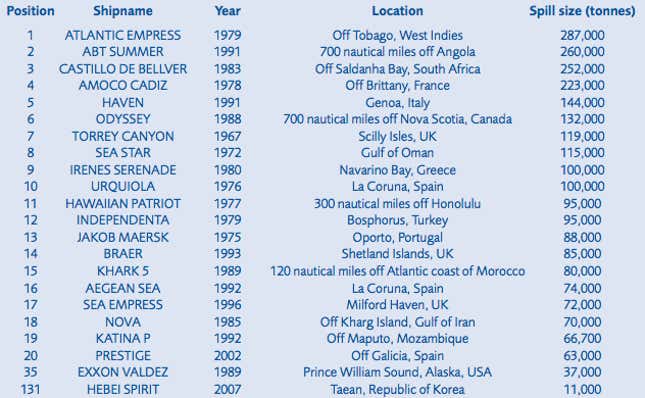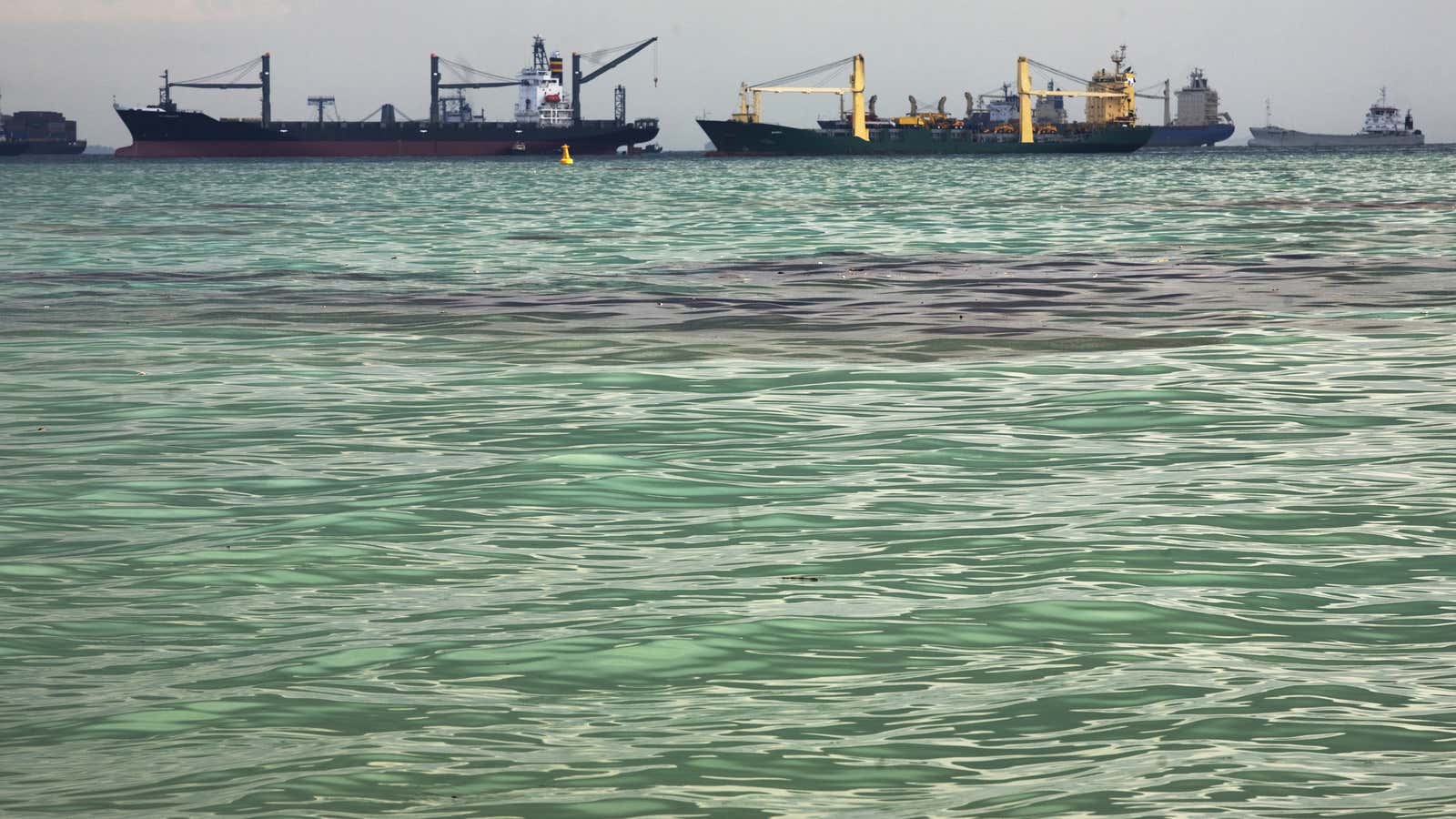Two bulk carriers—the South Korean-registered Oriental Pioneer and a Bahamas-flagged Atlantic Hero rammed into each other in Singaporean waters early this morning. Damage to the Oriental Pioneer’s fuel tank spilled around 100 tonnes (110 tons) of fuel oil. No one was injured, and the Singaporean government reports that cleanup is proving successful, though it has not clarified the cause of the collision. Here’s a look at the cleanup effort, via @TODAYonline:

Collisions occur with surprising frequency—already a dozen or so have occurred this year—though not all result in oil spills. The Singapore Strait—the narrow sea between Singapore and Indonesia—is particularly treacherous. Last year, two ships—a Hong Kong-registered bulk carrier and a Korean liquefied petroleum gas carrier—collided outside Temasek Fairway, causing an oil spill of less than 60 tonnes. The Singaporean government has been stepping up safety measures of late (pdf), though it’s not clear how those might have come into play in today’s collision.
Though collisions of bulk carriers and other vessels often result in oil spills, some perspective is due: they’re nothing compared to the tens and sometimes hundreds of thousands of tonnes of oil spilled when oil tankers collide. Here’s a look at the statistics for oil tankers (pdf):

However, for all types of ships, human error continues to be the main cause of collisions, according to Dr. Sven Gerhard of Allianz Global Corporate & Specialty. “For some commercial ship-owners, especially in the hard-pressed bulk cargo and tanker sectors, there is little money for maintenance and little money for training,” he explained.
